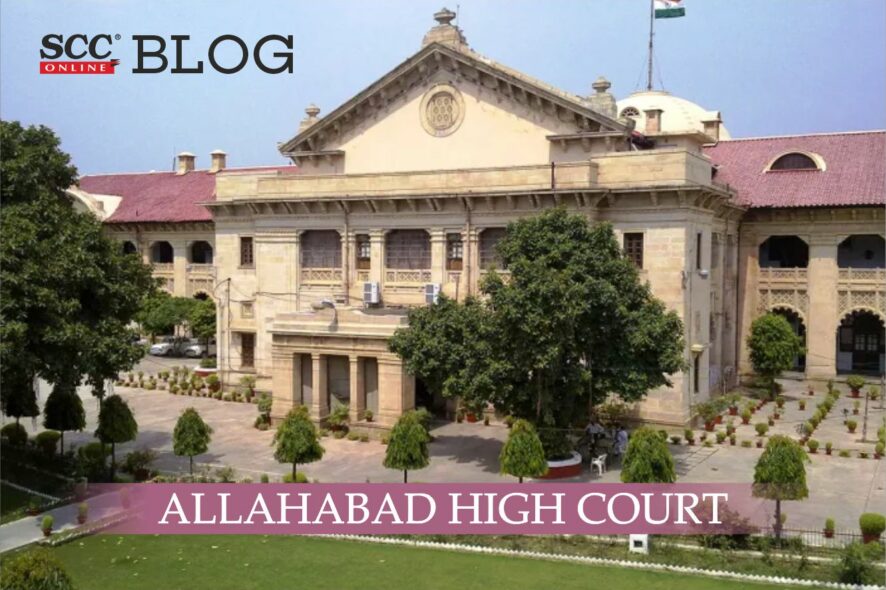Allahabad High Court: In a public interest litigation petition instituted under Article 226 of the Constitution of India challenging the U.P. Subordinate Forest (Deputy Range Forest Officer and Forester) Service Rules, 2021, framed under the proviso appended to Article 309 Constitution of India of the Constitution, the division bench of Devendra Kumar Upadhyaya and Saurabh Srivastava, JJ. has observed that the structure of cadre, source/ mode of recruitment, prescription of minimum qualification, selection criteria are matters exclusively fall in the realm of the employer and its judicial review is very limited. Thus, unless the petitioner can show that prescription of height of 163 cms. recruitment to the said posts does not have any reasonable basis, interference in such matters is not advisable.
The petitioner pointed out that prescribing minimum standard for of 163 cms height in case of a male candidate for the recruitment to the post of Deputy Range Forest Officer and Forester is violative of Article 14 of the Constitution of India, as for several other equivalent posts in other departments or even for the posts lower in rank in the same department, prescription of requisite height of a candidate is more than 163 cms. Further, in the forest department itself the prescription of minimum height for recruitment to the post of Vanya Rakshak and Vanya Jeev Rakshak is 168 cms., though these posts are equivalent to the posts held by a Constable in the Police Department, whereas the posts of Deputy Range Forest Officer and Forester are equivalent to the post of Sub Inspector in the Police Department. Also, for the post of Sub Inspector in U.P. Police, the minimum height of a candidate as prescribed is 168 cms., similarly even in the case of recruitment of a Homeguard, the minimum prescription of height is 167.7 cms; therefore, the minimum requisite height for recruitment to the post of Deputy Range Forest Officer and Forester ought to be fixed in tune with the height required for recruitment to these posts and not 163 cms, as such prescription is arbitrary and infringes the equality clause contained in Article 14 of the Constitution of India.
The Court relied on Duryodhan Sahu (Dr.) v. Jitendra Kumar Mishra, (1998) 7 SCC 273 and Dattaraj Nathuji Thaware v. State of Maharashtra, (2005) 1 SCC 590, wherein it was held that “Public Interest Litigation in a service matter is not maintainable, and that a private citizen or a stranger having no existing right to any post and not intrinsically concerned with any service matter is not entitled to approach the Court”, and observed that the petitioner is a complete stranger to the recruitment process, however, she is seeking certain alteration/ changes in the Service rules which is nothing but an expression of recruitment policy of the State Government.
Placing reliance on Union of India v. Pushpa Rani, (2008) 9 SCC 242, wherein it was held that the Court cannot prescribe minimum physical standards for recruitment on a particular post. Thus, the Court observed that the structure of cadre, source/ mode of recruitment, prescription of minimum qualification, selection criteria are matters exclusively fall in the realm of the employer and its judicial review is very limited.
It was also viewed that the submissions of the petitioner are fallacious because the height in case of recruitment, even of a Security personnel, cannot be the sole criteria for adjudging the suitability for appointment. Thus, dismissed the petition.
[Kavita v. U.P. Sub-Ordinate Services, Public Interest Litigation (PIL) No. – 710 of 2022, decided on 14-10-2022]
Advocates who appeared in this case :
Moti Lal Yadav, Advocate, Counsel for the Petitioner;
Gaurav Mehrotra, Advocate, Counsel for the Respondent.






